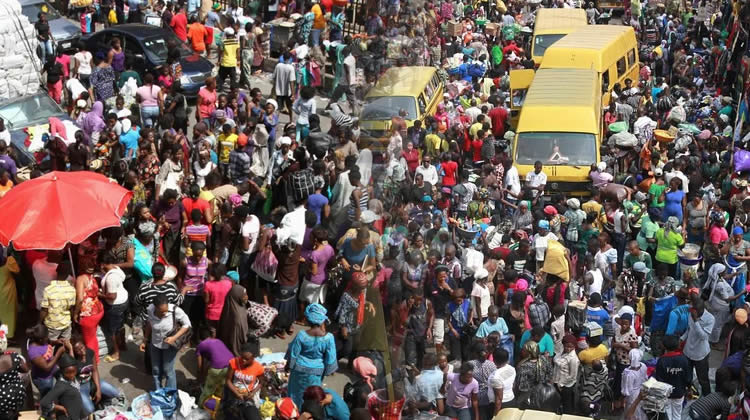
Suicides, Begging: How Nigerians Are Dealing With Unprecedented Hardship

Nigeria’s economic fortune has taken a downward curve due to many years of misgovernance and chronic corruption by the political class. The masses bear the brunt through extreme and multidimensional poverty, unemployment and hunger.
According to the Nigeria Bureau of Statistics, over 163 million Nigerians live in multidimensional poverty – that is about 65 per cent of the nation’s population and more than the population of any other African country.
The current government’s economic reforms, including removing subsidies on fuel and electricity, have driven inflation to 33.6%, the country’s highest in 28 years, resulting in a severe cost-of-living crisis. Unemployment and underemployment rates are drifting upwards, and the rate of hunger is described as ‘serious’ by the Global Hunger Index.
Sodiq Adetola, a secondary school teacher in Ibadan, Oyo State, told West Africa Weekly that he could barely feed himself with his salary of N45,000. “No matter how much I manage, I can’t feed myself for up to two weeks when I remove my daily transport fare to work. It is very frustrating,” he said.
Over a thousand companies have shut down operations, left Nigeria for other countries, or laid off staff to survive due to the country’s crushing economic climate. According to the Manufacturing Association of Nigeria (MAN), 767 manufacturing companies shut down operations in 2023, while another 335 experienced distress. MAN attributed these to various economic difficulties, including exchange rate volatility, rising inflation, and a deteriorating investment climate. Thousands of jobs have been lost while small-scale businesses struggle to make profits.
Nigerians are groaning on social media with different hashtags such as #EndHungerNow, #TinubumustGo, and #wearehungery, among others, intermittently making the trends on X. Nigerians also occasionally rant on social media about the high cost of food, healthcare and other essential goods and services.
But apart from the lamentations on social media, a sad trend of suicide attempts can be observed. Some recent successful or otherwise attempts have been linked to the pervasive economic hardships the masses face.
Nigerians Attempt Suicide Over Hardships
On Monday, a video went viral with a man up in a transmission mast attempting to kill himself. According to a suicide note he reportedly left at the foot of the mast, he was protesting economic hardships faced by him and many other Nigerians. He specifically demanded the return of the fuel subsidy, among other measures that could alleviate the suffering of Nigerians. He was eventually prevailed upon to get down and was arrested.
In another viral video on X, a woman reportedly committed suicide by jumping from a bridge on June 29 in Delta State. She was said to have left behind three children after struggling to no avail to feed them.
Last Saturday, another man, identified as Femi, committed suicide by jumping into the Osun River in Osogbo, Osun State. Femi, who reportedly succeeded at his second attempt, took his own life not long after he complained about the unbearable hardship he was facing.
Multiple suicides and suicide attempts have been reported in the media in the last couple of months. Although, some of the victims did not give reasons.
Nigerians Turn Baggers
Residents of major cities like Lagos and Abuja have observed a growing number of street and corporate beggars as the economic hardship bites harder. Last Month, Guardian Nigeria reported an influx of street beggars in Abuja, Lagos, and other major city centres, especially in the Southwest region. While some beggars are residents of these cities, others are destitute migrants from rural communities and more economically disadvantaged states.
Nigeria’s Hunger Crisis May Trigger Revolution – Expert
A food security expert, Reginald Ekeanyanwu, warned that the escalating hunger crisis in Nigeria may trigger a revolution if the government fails to address it. He noted that Nigerians are getting hungrier, which may soon become unbearable.
Ekeanyanwu, who shared his thoughts on Arise News last month, noted that the hunger crisis is driving insecurity. “When hunger becomes the daily norm, there’s a problem, and that is exactly what is driving our insecurity issues,” he said.
Read more: Suspend Samoa Agreement Now, Reps Tells FG
About The Author
Related Articles
Ivory Coast to Buy Unsold Cocoa to Support Farmers
Ivory Coast has announced a government plan to purchase unsold cocoa stock...
ByWest Africa WeeklyJanuary 23, 2026Ghana Moves to Reclaim Kwame Nkrumah’s Former Residence in Guinea
Ghana has embarked on a diplomatic and cultural initiative to reclaim the...
ByWest Africa WeeklyJanuary 23, 2026Senegal Honors Players and Coach After AFCON Triumph
Senegal has formally honored its Africa Cup of Nations winning team, awarding...
ByWest Africa WeeklyJanuary 23, 2026Burkina Faso, Mali, and Niger Turn to Russia for Shared Telecom Network
Burkina Faso, Mali, and Niger have announced plans to develop the Sahel’s...
ByWest Africa WeeklyJanuary 23, 2026











